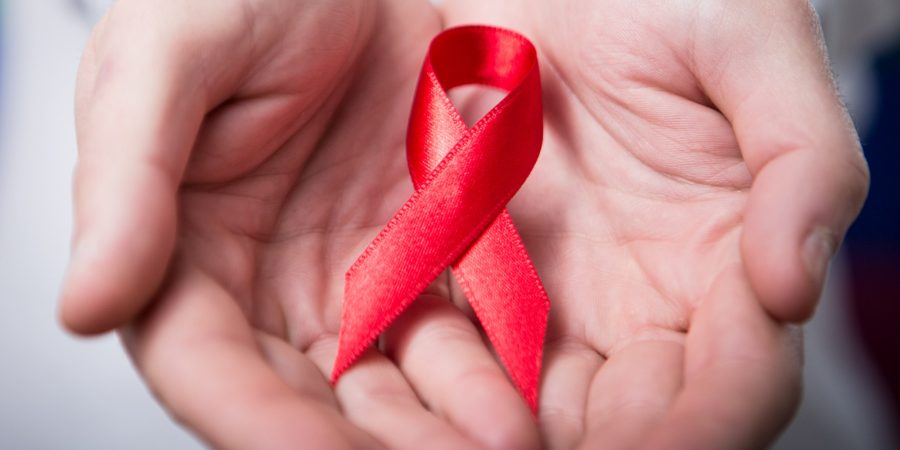California Governor Jerry Brown signed a bill Friday that lowers the penalty for knowingly exposing others to HIV. As of Friday morning, intentionally exposing a sexual partner to HIV in California was charged with a felony, but now it will only be seen as a misdemeanor.
The legislation also applies to people who give or donate blood without telling the blood bank they have HIV.

Although some praised the bill, many others shared their concern over it, saying that such legislation would inevitably increase the risk of HIV infections. The authors of the bill celebrated the measure, noting that California will no longer see those living with HIV as criminals.
Knowingly exposing people to HIV will now be a misdemeanor in California
The bill, SB 239, was passed by the California legislature on September 11, and on Friday Gov. Brown signed it. It was authored by state Sen. Scott Wiener (D-San Francisco) and Assemblyman Todd Gloria (D-San Diego).
According to Wiener, modern medicines allow people living with HIV to live longer and healthier lives and almost eliminates the possibility of transmission.
“Today, California took a major step toward treating HIV as a public health issue, instead of treating people living with HIV as criminals,” said Wiener in a statement, as reported by Los Angeles Times. “HIV should be treated like all other serious infectious diseases, and that’s what SB 239 does.”
The measure will come into effect on January 1, 2018. The previous penalty for knowingly exposing sexual partners to HIV had people serving up to eight years in prison. Now that it will be considered as a misdemeanor, jail time lowers to a maximum of six months.
Wiener and Todd argued California laws on the matter were outdated, and that those living with HIV should no longer be stigmatized for their infection.
“The most effective way to reduce HIV infections is to destigmatize HIV,” Sen. Wiener told CNN. “To make people comfortable talking about their infection, get tested, get into treatment.”
Wiener noted the previous law didn’t require a risk of infection, meaning those on HIV medication could still be charged with a felony and convicted regardless of their treatment status. In fact, there were cases where the state prosecuted people that had no physical contact with an HIV-free person. He told CNN the law was “extreme and discriminatory.”
Republican senator on the bill: ‘It’s absolutely crazy.’
HIV remained the only communicable disease for which exposure was a felony in California. Wiener said the outdated current law might convince people not to be tested for HIV, as without a test they could not be charged with a felony for exposing others to the virus.

Wiener said they are going to end new HIV infections, and that they will do so not by “threatening people with state prison time, but rather by getting people to test and providing them access to care.”
The bill was rejected by many Republicans, who argued the measure could lead to an increase in HIV infections. Republican Sen. Joel Anderson of Alpine, California, voted against the law, saying that it’s “absolutely crazy” to him that they should change the law on the matter.
“I’m of the mind that if you purposefully inflict another with a disease that alters their lifestyle the rest of their life, puts them on a regimen of medications to maintain any normalcy, it should be a felony,” he said during the floor debate, as cited by Los Angeles Times.
Anderson also said the solution could be to extend penalties to people who expose others to infectious diseases in general, not just HIV.
Bill enjoys support from several California organizations
Anderson was not the only one who met the measure with resistance. Sen. Jeff Stone voted against the legislation and shared his disapproval in September when the Senate voted on the bill. Stone, a pharmacist, said that Democrats’ arguments about those taking their medication have lower risks of spreading the virus are not so accurate.
Stone said three out of four people who are on prescription medication on the country do not follow their doctor’s guidelines on how to take the drugs.
“If you don’t take your AIDS medications and you allow for some virus to duplicate and show a presence, then you are able to transmit that disease to an unknowing partner,” said Stone in September, according to CNN.
It wasn’t all bad news for the new bill – the law was backed by Californians for HIV Criminalization Reform (CHCR), an alliance of organizations that seek to replace “stigmatizing laws that criminalize HIV status.” The bill also enjoyed support from the Los Angeles LGBT Center.
Source: CNN

The law was catching too many blacks
I knew the Democrat elites were sick, but this is just insane, Democrats claim that every thing the Republicans do will hurt or kill someone, what hypocrites. Jerry was studying to become a priest at one point, think about it.